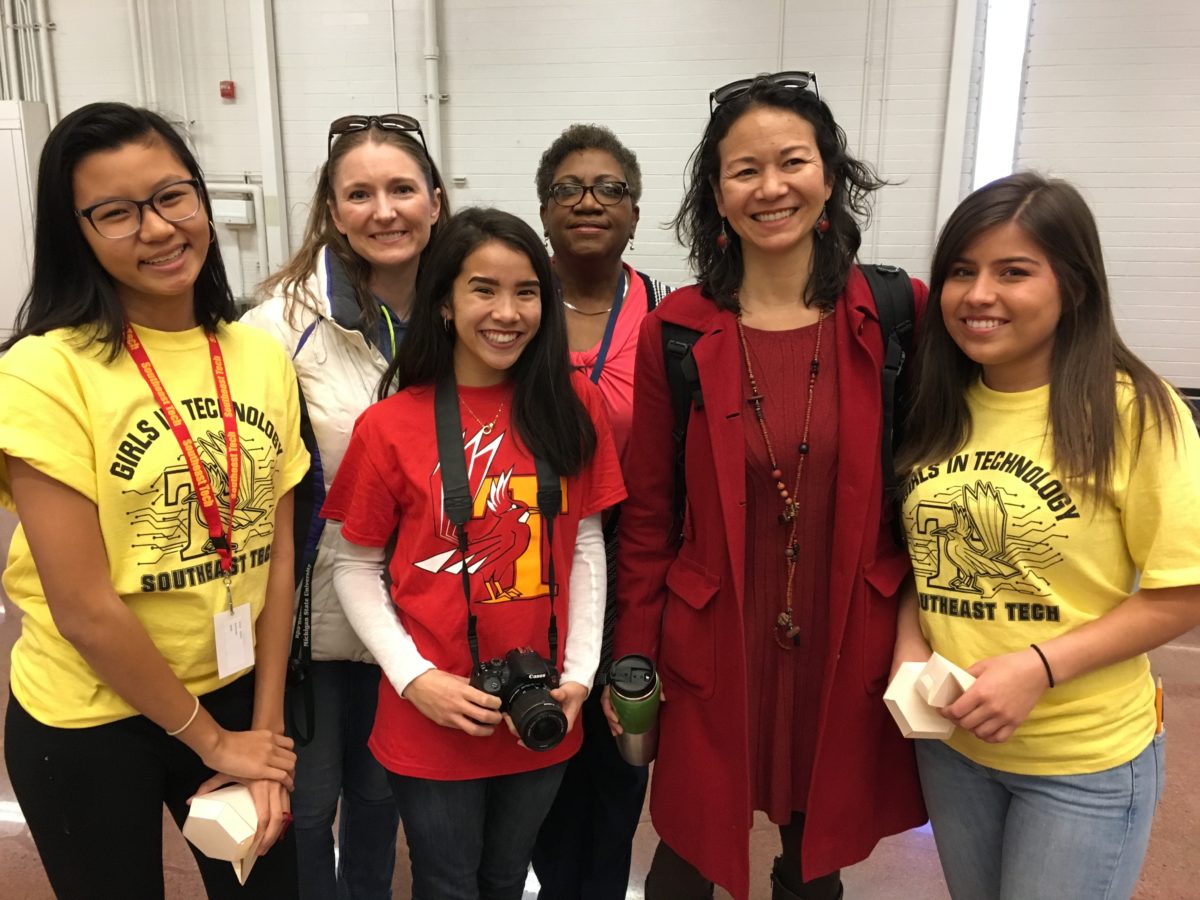This article originally appeared on the website of my FierceWomen Project™ internet tv show, WCOBM.tv. I live in “Sin City, Las Vegas” so I wrote a mentorship blog with a play on Sin City. It later turned into a talk, which was presented at Music City Code, CodePalousa, and a couple other conferences around the U.S. If you’re a mentor, then this offers tips for your relationship. If you’re a mentee, this article suggests a few things to keep an eye out for when considering a mentor relationship.
“Experiences are the sum total of who we are, but not of what we can become.”
My first mentor practically thrust herself into my life. I was a timid college girl, 20 years old, uncertain, insecure and invisible, or so I thought, when I meekly poked my head into the Cultural Diversity Office on campus. Sitting in the middle of this room filled with talismans and statues, flags and maps and a slew of books, magazines and newspapers from all over the world was Betty Chavis.
“Well what are you doing standing out there? Come on in!”
Her greeting and subsequent introduction surprised me. She spoke to me with enthusiasm and paid attention when I answered her questions. She took an interest in me and invited me to visit her anytime. I took her up that and she changed my life. Not only did she help me realize my dream of studying in the Australian Rainforest but she altered my view of people, myself and the relationships we cultivate in our life. She invigorated me with the belief in possibilities and the notion that anything can happen because I can make it happen.
That quote, “Experiences are the sum total of who we are, but not of what we can become”, has stuck with me for more than twenty years because, somewhere along the way, I accepted that I was a product of my circumstances and the things which had happened to me would define where I was going. Betty Chavis helped me find out that I could become whatever I wanted and, by showing me the way, she gifted me with a tremendous example of what it means to be a mentor.
Being a great mentor isn’t unlike parenting. It takes discipline, planning, adaptability and being committed. Here are four pitfalls to avoid while mentoring.
1 ) TRYING TO GUILT OR SHAME MENTEES
Guilt and shame are unpleasant for both people involved. Trying to guilt or shame a mentee into doing what you think is best for them will not create positive transformation. Instead of reacting with the negative impulse to shame someone, focus on helping them transform their feelings about the situation. Reinforce positive outcomes, find silver linings and embrace teachable moments. Nobody is failure free. Mistakes, when handled with enthusiasm and insight, are the biggest opportunity to fast track growth. If you can modifying your thinking to welcome these moments with a supportive attitude and empathetic heart, you will find your own ability to work through crisis will sharpen and your mentee will benefit enormously from a mentor with unflappable leadership skills.
2) DICTATORSHIP ? MENTORSHIP
Never mistake mentorship with dictatorship. They are not the same thing. Often times mentors will be tempted to replace guidance with dictation. Being an expert means you have learned things your mentee has not. Your purpose is to instruct, guide and support their learning so that they can have an easier road than you did. Don’t fall victim to the temptation to try and control others. It never works.
Many factors influence how people respond to you. Are the afraid of you? Do they want to impress you or gain your approval? Do they respect you? Any living organism will naturally choose to take the path of least resistance, unless they are wired like me and too often decide to do things the hard way. Most people want to avoid interactions that are not pleasant and dictators are not pleasant to be around. Remember, as a mentor you have committed to guiding your mentee towards their goals by giving them valuable real world experience. It won’t always happen the way you plan for or want. Be adaptable and kind.
3) MOTIVATING WITH BRIBES
It used to be that you worked at a company for your entire life then retired. Those days are gone. People want to feel connected, engaged and involved. Purpose is just as important as a paycheck in order to stay motivated and engaged. Mentors can sometimes try too hard to motivate mentees using monetary rewards or gifts. These might work temporarily, however, helping to guide the mentee into understanding their true purpose and their passion for success will create lasting motivation.
Take the time to invest in knowing your mentee. What are they motivated by? What are their short and long term plans, goals and dreams? What are their strengths and weaknesses? What is their dog’s name? Yes, even that is important because when you know someone you are more inclined to understand what inspires them and what makes them feel defeated. You will know how and when to push and when to lay off the gas. You are offering them a valuable relationship but its value is largely determined by how invested you are willing to be. Don’t cheat them by being lazy in your approach to this relationship or you both will lose.
4) TELLING THEM WHAT THEY WANT TO HEAR
Growth happens when we feel uncomfortable. That is why mistakes and failure are such tremendous opportunities to latch onto. While encouraging words and kindness will be appreciated (and should absolutely be part of your interactions) a person never challenged will either never grow or grow at such slow pace it may not matter. Growth and experience is the goal. That is where the value is for both you and those you mentor. Push yourself to find the chances to press them a bit, make them think on their feet, adapt to new information or a crisis.
In the end, as a mentor you must have faith in the process and faith in your mentees. The greatest gift you can give someone is belief in themselves. That is your job as a mentor. Make sure you are up to it.
If you know of a young woman or girl who loves vision boards, then get her the vision board in a book: FierceWomen VisionBook™. Each chapter includes guiding questions that a mentor might ask such as “Who inspires you? Where do you see yourself living in 5 years? What kind of training will you need?”


